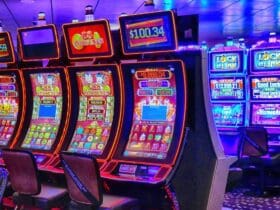The biggest news story to hit Wales in recent years has been the drop in the speed limit down to 20 mph in many urban areas. It’s proving to be a highly contentious issue with pros and cons being debated on both sides, but what else can we learn from it?
To take a different angle on this issue we’re going to look at what happens when we each make a conscious effort to quite literally live our lives at a slower pace. Let’s start with the need to drive slower in Wales and build out from there.
The changes in motoring legislation are designed to keep more of us safe and give us more time to react to events unfolding on the road. Regardless of what you think the speed limit should be in terms of a number, clearly we all agree that we want to be safe and have sufficient time to react. Applying these principles to a wider range of life events actually provides a number of interesting insights into the benefits of moving more slowly.
Moving slowly doesn’t just give you more time to react, it provides more time to reflect on longer term events around you. Now, we’re not talking about the drop in a suburban speed limit as the road to zen-like living — what we’re talking about is learning a wider lesson by adopting the art of slow living.
Think about what typically characterises stressful events and it will be some combination of an overwhelming wealth of information to process and sudden, abrupt changes. The problem then quickly becomes one of trying to keep up with this unsustainable pace, only to crash and burn in terms of our mental health when our stress response spikes.
Finding a way to slow things down may not change the events that surround us, but it will most certainly change how we react to them. By giving yourself time and space to process rapidly arriving information, you escape the trap of looking for a knee-jerk reaction, only to unwittingly make things 10 times worse.
The problem is that simply slowing things down in the heat of the moment is so much easier said than done that it’s just not realistic. After all, if you could do it, you wouldn’t be reading a piece like this. What we need to do instead is focus on finding a more measured, gradual and sustainable approach built on everyday realism. Once we do that, we truly will be reaping the rewards and feeling the benefits of living life in the slow lane.
First things first, we need to find a way to slow down the speed our minds are working at when we’re not faced with a stressful situation. For many of us who spend every spare moment of our time looking at a screen or playing with our phones, this means embracing boredom.
Something as simple as waiting in line at a shop to pay for your food used to be a moment where you would watch other people, daydream or just do nothing. These days we all instinctively reach into our pockets, swipe and then scroll for as long as we can get away with before being interrupted by real life. To start slowing things down, we need to make the most of these little breaks in the day and use them as a time to free our minds from new information, not bombard ourselves with thousands of new stimuli.
Putting the phones away in the evening is a great way for a family to connect and really spend time with one another, rather than just being in the same room as one another. Putting your phone in your pocket doesn’t work because you’ll be too tempted to fish it out and scroll. Adding screen limiting apps to your phone doesn’t work because you’ll just find ways around the limits you’ve set up. What you need to do is a simple, revolutionary act: leave your phone in a different room.
The kitchen drawer, the bathroom cabinet, even the car — the key is to put it somewhere you can’t get to within 5-10 seconds. By removing the immediacy with which you can satisfy your urge to check your messages and scroll for updates, you give yourself the best possible chance of breaking the cycle. Once you start to reconnect with reality, there’s no shortage of activities you can start to do instead of all that largely mindless — and stress-inducing — screen time.
Finding pleasure in the simple things like walking the dog, picking the first movie you find that you like rather than clicking around for an hour, or cooking a meal together are all great ideas. Take your time with them, don’t feel like you have to try and cram in too much and practice gratitude each time you experience something you can be thankful for. Once you do that, you truly will be feeling the benefits of slow living.
With so many digital distractions and instant sources of information, we now take things like playing casino games online when we’re bored, rolling news and never-ending piles of photos of our friends for granted. But what if we took a little inspiration from the drop in speeding limits in Wales and started to employ this slower approach to life in other areas?
By embracing life in the slow lane, you can reduce your background stress and anxiety one move at a time, and all in a way that will set you up to thrive when life throws something at you. You’ll be giving your mind time to rest, reset and recover so you can process your emotions and get your thoughts in order.
We all used to do this without even thinking about it before the iPhone and Facebook entered our lives. Now that we’ve pointed it out to you, how about coming for a ride in the slow lane and seeing where it takes you…









Leave a Reply
View Comments